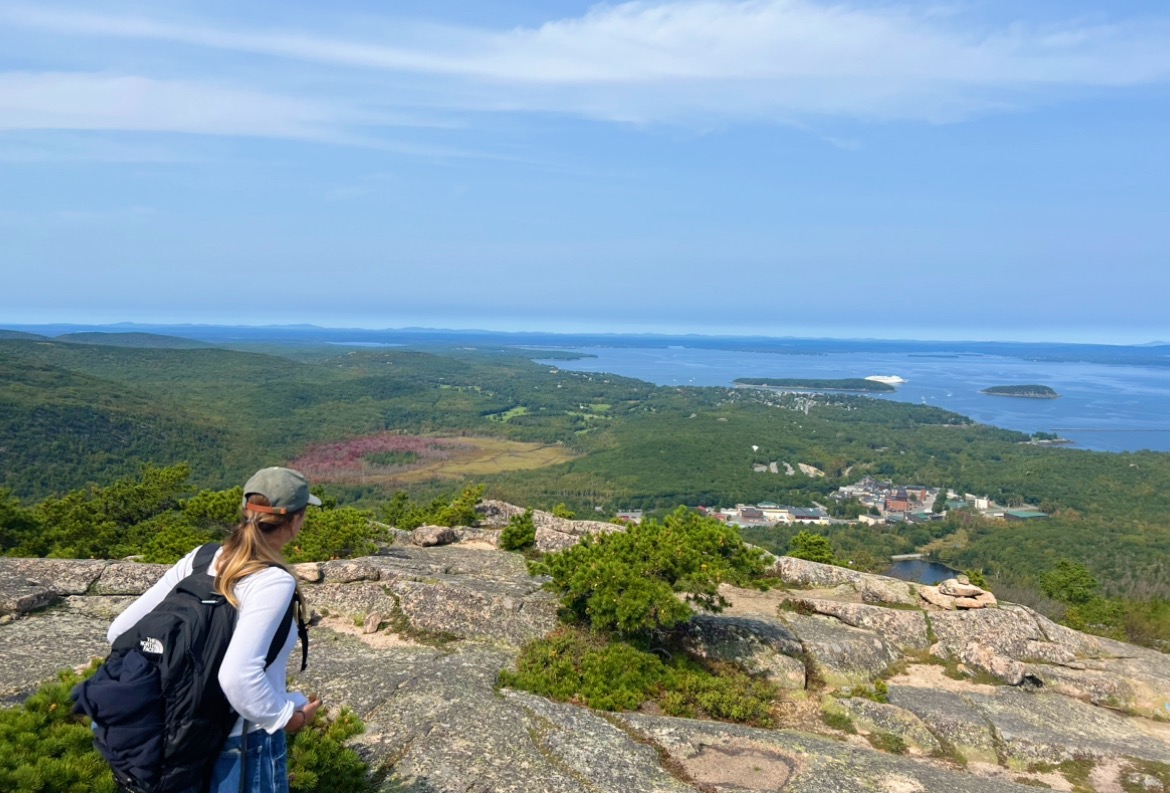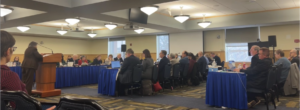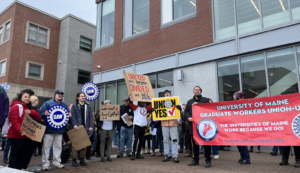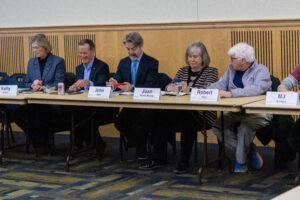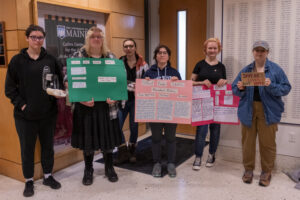On Oct. 2nd, Fogler held a meeting to discuss the impacts of overpopulation and climate change on Acadia National Park. The panelists, John Daigle, Kevin Schneider and Ken Olson, discussed the ways they fight against this destruction as well as new initiatives the park actively makes to support a successful environment.
Kevin Schneider, the superintendent of Acadia National Park, delves into the problems of unavoidable climate change and how it will change the park. As he says above, pretending to be ignorant of this is making an active decision of destruction. Schneider predicts that in 100 years, the red spruce tree, the staple landmark of Acadia, will be heavily in decline. If heat-trapping pollutants continue at their current levels, Acadia’s temperatures may be 8.5°F hotter by 2070-2099 than it was in 1961-1990. To address this, Schneider reveals plans to begin assisted migration in the park, instituting treatment for different plant species and planting new native species of trees.
Schneider also reports the fair free buses in Acadia help with both mitigating crowds and offsetting emissions that would otherwise be made with multitudes of cars. The superintendent discussed the pathways to take when delving into climate change: resistance, acceptance and direction (RAD).
Directing change is imperative now to serve the park’s main goals.
“Our mission is to preserve these places unimpaired for future generations… we have to do no harm so these places can be transformative…We plan to have solar facilities in 10 years so that all park operations are carbon neutral,” said Schneider.
Another forthcoming issue on the rise in Acadia is overpopulation. This overwhelm as retired President and CEO of Friends of Acadia Ken Olson raises the question,
“According to the U.S. Census Bureau, in 2021, there were 3 million people [visiting Acadia National Park]. Today, just 20 years later, [it is] more than 4 million. Where are these people going to go?” Olson said.
Furthermore, Schneider highlights that in just a 10-year time frame, visitation has increased 70%, but the budget has gone down 18%. This means that the park gets all of the negative connotations of excess crowding, such as resource damage, delays in emergency response and gridlock without the resources to support it.
“In 2018, 80 times we had to close the road from traffic. This caused so many problems. 911 was called. That is not the experience people want when they come to Acadia,” Schneider said.
In order to combat the problems that crowds bring to the park, Acadia National Park, with the support from Friends of Acadia, is running the Island Explorer Bus System, a fair free bus circulating the area. This helps with emissions, as well as crowding, traffic congestion, and, in turn, emergency response time. While the park is actively working to improve this system and mainline it more, this complex invites another host of problems, mainly due to the lack of drivers and employees. While the park needs 175 employees, it only employs 115 people as of now. This is because the only housing offered for employees holds 80 people.
Kevin Schneider lays out this hostile cycle of success management in the park that constantly needs improvement. Overcrowding is an issue tied to housing that, with the support of partners, is still seeking development to better support the guests. Alongside the bus, vehicle reservation is being utilized especially on Cadillac Mountain.
“(Overcrowding) is not the experience that people are coming to Acadia National Park to get and that is what this notion of vehicle reservation comes in. We have this asset of parking, and it is utilizing that available parking to manage the sort of turnover rate to the amount of cars it can accommodate,” Olson said.
Along with continued partnership and progression with Friends of Acadia, the park will continue to work with the increasing number of visitors to better sanctify the experience and health of Acadia. A large takeaway from the meeting was the panelists discussing the importance of education surrounding Acadia, including the importance of knowledgeability surrounding climate and population issues. With help from the Schoodic Institute, the panelists with Acadia are committed to the sanctity of the park.
The only follow-up to this is, will these measures be enough?
